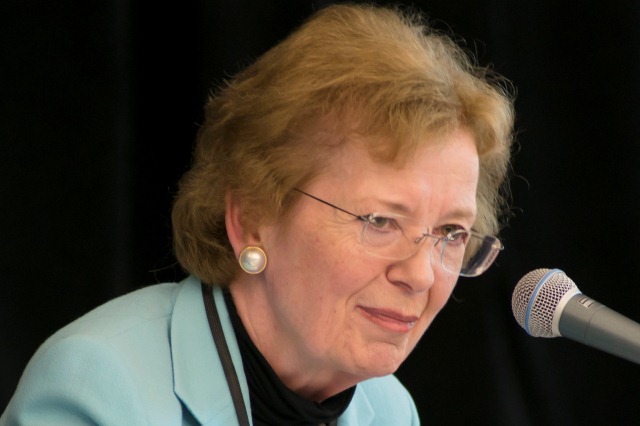Governments and the private sector will need to work closely together if modern energy services are to be provided to the 1.3 billion people in the world who are currently without them, Mary Robinson told a roundtable discussion recently.
Governments and the private sector will need to work closely together if modern energy services are to be provided to the 1.3 billion people in the world who are currently without them, Mary Robinson told a roundtable discussion recently.
Speaking at the 2013 Brookings Blum Roundtable on Global Poverty, held in Aspen, Colorado, USA, Mrs Robinson discussed the need for a co-ordinated multi-stakeholder approach to tackling the issue of access to sustainable energy.
While commending the work of the Sustainable Energy for All initiative in helping to provide between five and 10 million households in Africa and India with solar lanterns, and the issuing of microcredit to hundreds of millions of low income households through schemes like the Grameen Foundation’s microfinance institutions, she argued that more still needs to be done. With 1.3 billion people still without access to modern energy services and twice that number relying on wood, animal waste and charcoal to cook their food, the need to take large-scale action remains.
Mrs Robinson made the comments in her role as moderator of the ‘Goods, Services and Jobs for the Poor’ roundtable session, which was held on Monday 5 August. Panellists included Ashish Karamchandani, Executive Director, Deloitte Monitor Inclusive Market; Chris Locke, Managing Director, GSMA Mobile for Development; Ajaita Shah, Co-Founder and CEO, Frontier Markets; and Hubertus van der Vaart, Co-Founder, Small Enterprise Assistance Funds (SEAF).
The session discussed the areas where the most promising emerging business models that serve the poor are arising; the main obstacles to selling essential products to the poorest people; and the common features that distinguish successful and replicable solutions.
Mrs Robinson addressed the issue of joint public-private initiatives as an option in providing the poorest with the products and services that can have a transformational effect to their lives and health, such as sustainable energy services. “Soft capital” from philanthropies, aid donors and governments is critical to the development of market-based solutions, from nurturing pioneer enterprises to addressing ecosystem barriers, she told the panel.
The discussion was one of several to take place over three days (4-6 August) on the theme: ‘The Private Sector in the New Global Development Agenda’.
Related links:


